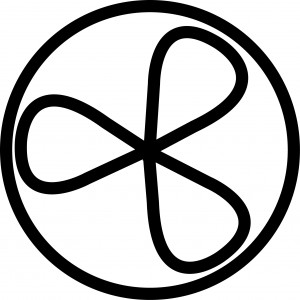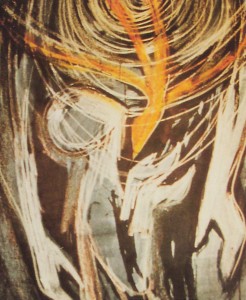 The Old Testament uses several words and names for God and many of them have connections to Jesus (YHWH) and to the idea of a trinity or multi-unity(Elohim/Adonai). But Isaiah 63 goes a step further unpacking three distinct qualities of God.
The Old Testament uses several words and names for God and many of them have connections to Jesus (YHWH) and to the idea of a trinity or multi-unity(Elohim/Adonai). But Isaiah 63 goes a step further unpacking three distinct qualities of God.
The chapter starts by asking a question. “Who is this who comes from Edom“, Isaiah 63:1. Now Edom was the nation descended from Esau, but prophetically Edom often stood for “Adam” or doing things by human effort, in Hebrew Edom is Adam with an extra letter, “ארום” instead of “ארם” (see coming post on Obadiah). Note: Bozrah was a place the name means an “Enclosure” but comes from a word meaning “to be cut off” which was used for grape picking, see the following verses).
It goes on to describe this human as having “crimson garments“, “majestic apparel“… but they speak like God… “It is I who speak in righteousness, mighty to save“. Isaiah then asks: “Why is your apparel red?” (v2), and is told that the God-man that he has seen has trodden the wine press alone with no-one else to help. He describes the incident as both “a day of vengence” and “my year of redemption” (v4).
The imagery gets complicated … because God describes punishing humanity … though in Jesus it is God who is taking humanities punishment, though that is not clear here. Neither is it the subject of this post…but what comes next is.
So, having mentioned YHWH’s lovingkindness and goodness (v7), we are told that “He” (YHWH and/or the one from Edom/Adam?) became the peoples “Saviour“, (v8), and is afflicted in “all their afflictions“, (v9 though some translations use a different phrase). This Saviour is then called the “messenger of His presence” (the Hebrew for “angel” and “messenger” are the same word “Malak”/”טלאך”).
A human-divine Saviour clothed in crimson stained by the lifeblood of humanity’s punishment/redemption, experiencing thier affliction is sounding very like Jesus, the Son of God.
 Then the Holy Spirit/Spirit of YHWH is mentioned three times over the next five verses in relation to the “Him” of the previous section. “they grieved His Holy Spirit” (v10); “where is He who put His Holy Spirit in the midst of them/Him“, (v11, note if your translation says “them”, the Hebrew actually says “Him”); “The Spirit of YHWH gave them/Him rest”, (v14, see note on v11).
Then the Holy Spirit/Spirit of YHWH is mentioned three times over the next five verses in relation to the “Him” of the previous section. “they grieved His Holy Spirit” (v10); “where is He who put His Holy Spirit in the midst of them/Him“, (v11, note if your translation says “them”, the Hebrew actually says “Him”); “The Spirit of YHWH gave them/Him rest”, (v14, see note on v11).
So the Holy Spirit is His Spirit and YHWH’s Spirit!
Finally Isaiah goes on to declare: “You are our Father“, and “You, YHWH are our Father“, (v16). The verses finishes by calling YHWH Father, “Our Redeemer”.
This time YHWH is the Father!
In this single chapter we see YHWH called Father, Spirit and Saviour. In this strangely ambiguous passage where we see God taking the punishment he dishes out, redeeming people while punishing humanity, the Trinity appears as more than just a hint of plurality. It is revealed with different dimensions: Father, Spirit, Son.
Christen Forster
Christen has planted churches, been a youth worker, mission administrator and church leaders. The author of several books, Christen is now an itinerant minister, helping churches to step into a more deliberately spiritual experience of the Christian life while at the same time firmly rooting their practice in scripture.
© 2000 - 2024 Christen Forster
Latest posts by Christen Forster (see all)
- The Heart of the Tabernacle - June 6, 2019
- Some Interesting Psalm - May 12, 2019
- God the Word - April 22, 2019
